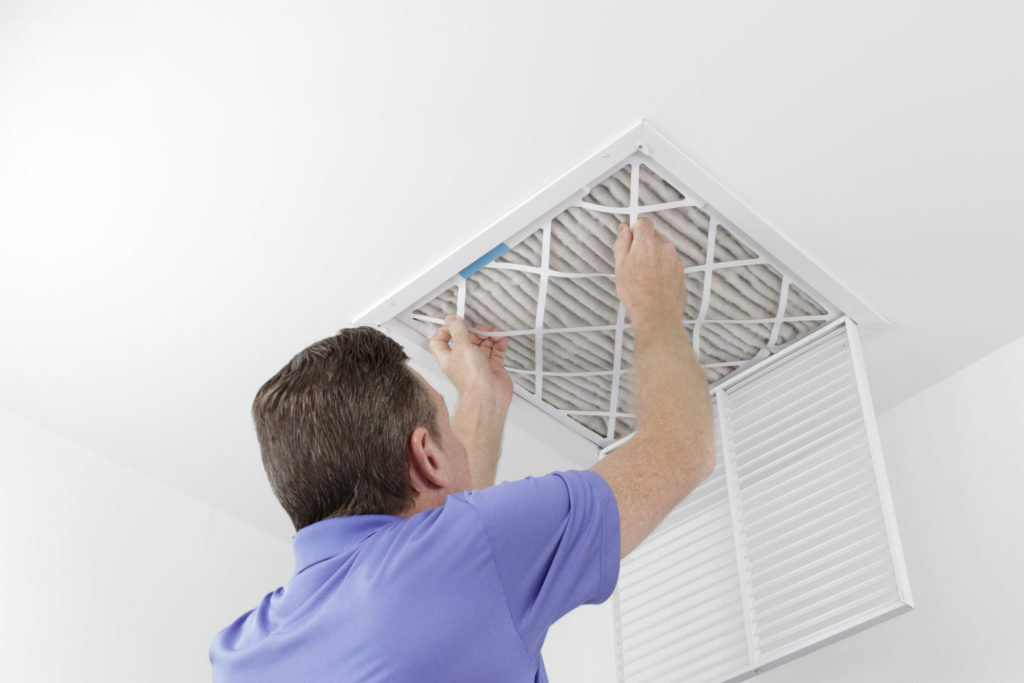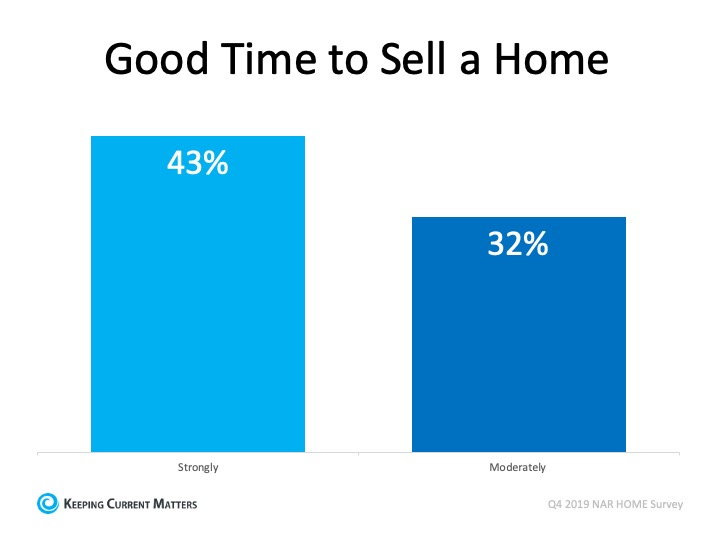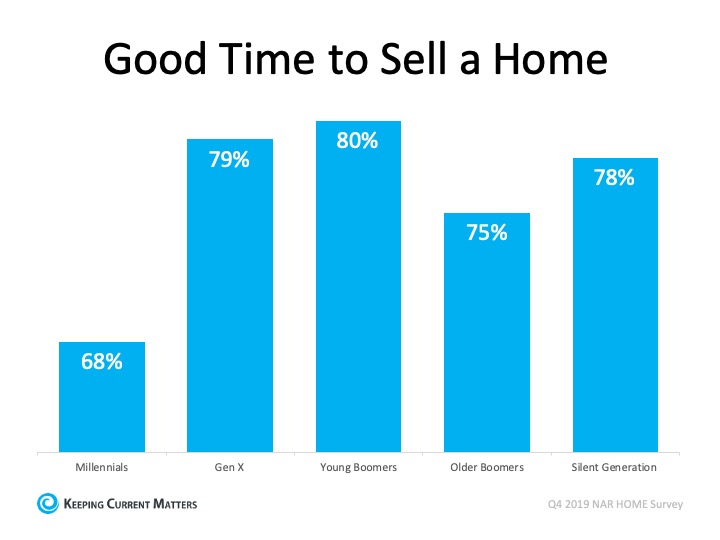
If you or someone in your home has allergies, you are probably all too familiar with the physical symptoms. Coughing, sneezing, watery eyes and wheezing or shortness of breath are extremely common and can make you feel absolutely miserable. But did you know that allergies, especially seasonal allergies, can also have an impact on your psychological health?
A variety of recent studies show a direct correlation between allergies and anxiety. There are many suspected reasons for this, from the body’s natural response to inflammation to the psychological stress of feeling sick, but the latest research leaves little doubt that those who suffer from allergies are at higher risk for anxiety (though the reverse does not seem to be true).
Fortunately, treating the allergies appears to bring down the anxiety as well. Seeing a doctor for your allergies is always important, but minimizing your exposure to allergens can also help. Properly maintaining your HVAC system is one of the biggest ways that you can lessen allergens in your home, reducing allergy flare-ups and the anxiety that goes with them. In addition, regular HVAC maintenance boosts the lifespan of your system, reduces the risk of expensive breakdowns, and keeps costs down by maximizing efficiency. If your HVAC has reached the end of its useful life, consider replacing it with one of the best furnaces or best air conditioners of 2020.
Link between allergies and anxiety
The link between allergies and anxiety has been heavily documented. A 2019 German study of 1,782 participants with an average age of 61 was published in the International Archives of Allergy and Immunology. It found a strong link between generalized anxiety and seasonal allergies. Medical News Today notes younger people were underrepresented in that study, but a small study published in the Journal of the American Academy of Pediatrics in 2016 shows similar results in children.
In July 2019, The Atlantic published a detailed roundup of research addressing this issue, as well as a comprehensive analysis of the factors that may play a role in linking allergies with anxiety. A simple explanation is that feeling sick can cause psychological stress. You might worry about whether your symptoms are actually from an illness or become anxious when you are straining to breathe. You might also worry about coming into contact with the things that trigger your allergies and begin making a conscious effort to avoid them. Over time, these heightened emotions, thought patterns and behaviors can threaten your sense of overall safety and security in the world. In turn, it is not uncommon to settle into ongoing, chronic anxiety.

There may also be an evolutionary component to the link between allergies and anxiety. When the body is ill, there is a strong, innate drive to stay inside and rest. Dr. Ahmad R. Sedaghat, associate professor of otolaryngology at the University of Cincinnati, explained to The Atlantic, “Evolutionarily, all animals have this reaction, called ‘sickness behavior,’ when they’re sick. It’s meant to conserve energy.” Yet those with allergies can’t simply stay home all the time, and the conflict between societal expectations and internal drive can cause stress and anxiety. Dr. Sedaghat also notes the persistent nature of allergies can lead to a cycle of worsening anxiety.
Biology may also be partly to blame, notes pediatric allergist Maya Nanda in The Atlantic. Allergies cause inflammation, which increases the production of a stress hormone known as cortisol. This, in turn, interferes with the production of the feel-good hormone, serotonin. The combined increase in stress hormones and reduction in feel-good hormones can lead to anxiety. The inflammation also causes a buildup of inflammatory chemicals known as cytokines in the sinuses. They can leak into the blood, affecting brain and central nervous system functionality.
There is much we still don’t know about the complex connection between mind and body. But as Dr. Sandro Galea, an epidemiologist at the Boston University School of Public Health, notes in The Atlantic, “There is good circumstantial evidence that’s growing that a number of mental illnesses are associated with immune system dysfunction.” In the same article, Dr. William Yao, an assistant professor of otorhinolaryngology at the University of Texas Health Science Center, states that “[i]f you have allergies and anxiety, and you ignore your allergy symptoms, it might be challenging to treat the anxiety.” It only makes sense to treat both disorders simultaneously and to do what you can to minimize your exposure to allergens, especially in your home.
HVAC maintenance and allergies
The first line of defense against allergens in your HVAC system is the filter, and not all HVAC filters are the same. The effectiveness of an air filter is measured by its MERV (minimum efficiency recording value) rating. Developed jointly by the American National Standards Institute (ANSI) and the American Society of Heating, Refrigerating and Air-Conditioning Engineers (ASHRAE), the MERV scale runs from one to 16 for regular HVAC filters and from 17 to 20 for HEPA (high-efficiency particulate air) filters. The higher the number, the better the filter is at removing contaminants and allergens from the air.
Types of HVAC filters
HVAC filters fall into four main types. HVAC manufacturers typically provide a flat panel filter. These inexpensive filters typically have a MERV rating of just one to four and do little to improve the air quality in your home. It’s best to replace this default filter as soon as possible, especially if you have allergies.
Pleated filters have more surface area and are able to filter more particles from the air. They are available in medium efficiency versions, with MERV ratings of five to 13, as well as high-efficiency models, with MERV ratings up to 16.
HEPA filters, with MERV ratings of 17 to 20, may seem at first glance to be the best choice for allergy sufferers. However, they are not recommended for typical central home HVAC systems. They put tremendous stress on the system and could even cause damage. If you want a HEPA filter, check with your HVAC system manufacturer to determine whether it’s safe. Otherwise, you may need costly upgrades to your system.
Fortunately, HEPA filters are generally not necessary, even for those who suffer from allergies or asthma. A filter with a MERV rating of eight to 11 is sufficient for most homes, while those with allergies or respiratory ailments should select a filter in the nine to 12 MERV range. Many filter manufacturers offer filters that are specifically designed to remove the most common allergens, such as pollen and pet dander.
How often should you change your air filter

Even the best air filters don’t last forever. Since they remove particles from the air, eventually air filters become clogged and need to be replaced. A clogged air filter can no longer remove contaminants from the air, increasing the risk for allergy flare-ups.
The standard manufacturer recommendation is typically to change your air filter every 30 to 60 days, but this can be affected by the number of people and pets in your home, as well as any allergy concerns:
- If you live alone with no pets or allergies, you may be able to wait six to 12 months to change your filter. This is also true for vacation homes that see little use.
- If you have a family but no pets or allergies, plan to change your filter every 90 days.
- If you have one pet but no allergies, every 60 days should be fine.
- If you have multiple pets or anyone in the house has allergies or respiratory problems, change the filter every 20 to 45 days, depending on its MERV rating and how soiled it appears.
Note that this may be a trial and error process. As you live with a particular brand and style of air filter, you will start to get a feel for when it needs to be changed. Use the above recommendations as a starting point, and fine-tune your schedule to fit your individual needs. If you change the brand or type of filter you use, you may need to alter your schedule for changing it as well.
Other benefits to maintaining a clean HVAC system
Not only does a dirty air filter or poorly maintained HVAC system increase the number of allergens in the air, it can also lead to quite a few other problems. Once air can no longer flow freely through the system, you may start to see higher energy bills and poor temperature control. Over time, a clogged filter or other lack of maintenance forces the system to work harder and can lead to expensive repairs or even a complete HVAC system failure.
The benefits of keeping your HVAC system clean and well maintained include:
- Better efficiency and lower monthly energy bills
- Indoor temperatures that are cooler in the summer and warmer in the winter
- Maximized lifespan of your system
- Fewer costly and time-consuming repairs
- The system works when you need it, without worries that it will break down on a particularly hot or cold day
Putting it all together
The mind-body connection is still largely a mystery, but an increasingly large body of scientific research shows that it exists. Over the past few years, numerous studies by respected researchers have consistently shown a link between allergies and anxiety in people of all ages. Though this doesn’t necessarily mean that allergies cause anxiety, it does mean that it only makes sense to treat the two conditions simultaneously and do what you can to reduce your exposure to allergens in your daily life.
HVAC filters are one of the easiest ways to minimize allergens in the air you breathe at home. Most people don’t think about their HVAC system until it stops working properly, but taking the time to make sure you have the right filter, and to change it regularly, can have tremendous benefits. Not only will the filter remove most allergens from the air, reducing flare-ups and potentially lowering anxiety, but it will also help keep your HVAC system running as it should. This can save you time and money while helping to protect your physical and mental health.
Of course, nothing lasts forever. If your HVAC system has come to the end of its useful life, FurnaceCompare.com can help you choose the new system that is right for you.
Disclaimer: This Content is not intended to be a substitute for professional medical advice, diagnosis, or treatment. Always seek the advice of your physician or other qualified health provider with any questions you may have regarding a medical condition.
Source: FurnaceCompare blog site 011320




